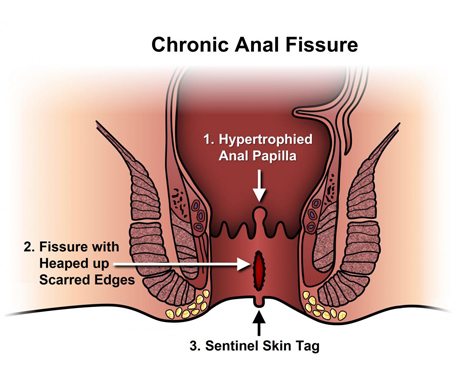
An anal fissure is a small cut or tear in the lining of the anus. The crack in the skin causes severe pain and some bright red bleeding during and after bowel movements.
At times, the fissure can be deep enough to expose the muscle tissue underneath.
Certain treatments can promote healing and help relieve discomfort, including stool softeners and topical pain relievers.
In most cases, the tear heals on its own. In cases where the fissure persists beyond 6 weeks, it’s considered chronic.
If an anal fissure doesn’t improve with these treatments, you may need surgery. Or your doctor may need to look for other underlying disorders that can cause anal fissures.
Most anal fissures will heal without surgical intervention. Anal fissures are open wounds, so keeping the area clean and dry will assist in the body’s natural healing processes.
Eating a high-fiber diet, drinking plenty of fluids, taking sitz baths, and using anti-inflammatory ointments can help current fissures heal and prevent new ones.